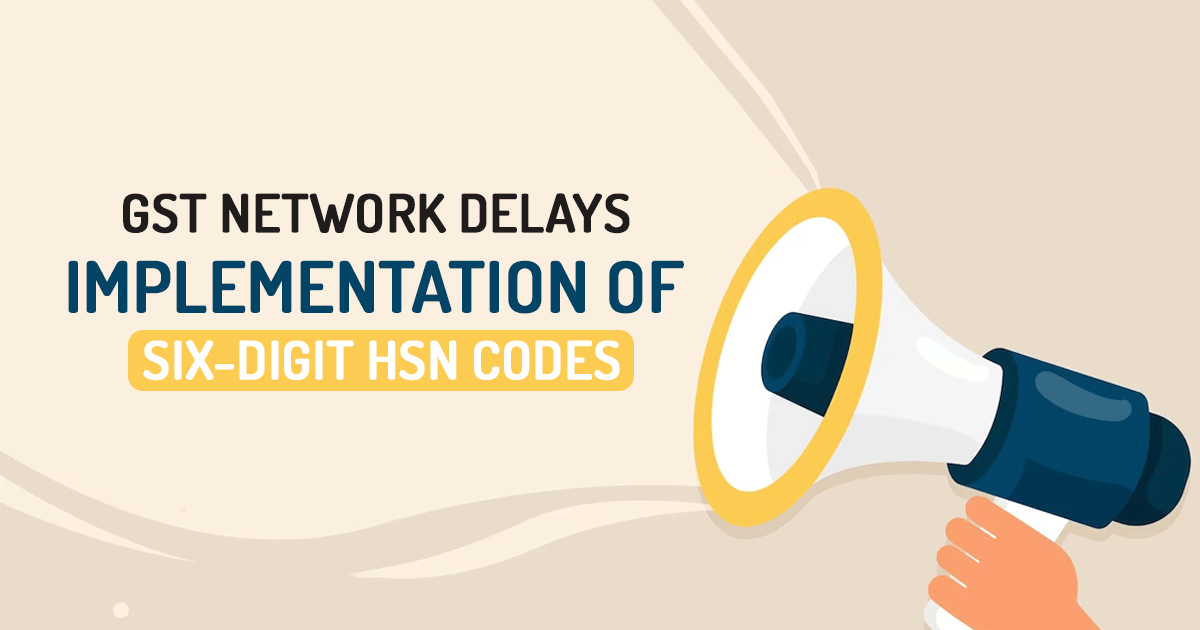
The implementation of the mandatory requirement of a 6-digit HSN Code in e-Invoices and e-Way Bills has been postponed by the Goods and Services Tax Network (GSTN).
Under the GST e-invoice System, Goods and Services Tax-registered individuals must upload their B2B invoices to the Invoice Registration Portal (IRP). The IRP then issues a unique Invoice Reference Number (IRN), digitally signs the e-invoice and provides the user with a QR code.
As per Notification No. 78/2020 — Central Tax dated 15th October 2020, taxpayers were initially required to include 6-digit HSN Codes Mandatory for outward supplies exceeding Rs. 5 Crores. However, implementing this requirement has been deferred in the e-invoice portal.
However, the GST Authority has decided to impose a time limit of 30 days for reporting invoices from the date of the invoice on e-invoice portals. This time limit is applicable for taxpayers with an Aggregate Annual Turnover (AATO) greater than or equal to 100 crores starting from 1st November 2023.
The specific date for blocking e-invoice generation with 4-digit HSN codes will be notified on the portal. Stakeholders are advised to modify their systems to ensure compliance with the notification by reporting 6-digit HSN codes to the e-Invoice Portal.
Stakeholders are encouraged to review and validate their HSN codes on the portal (https://einvoice1.gst.gov.in) under Codes and conduct testing in the sandbox system (https://einv-apisandbox.nic.in).
For stakeholders who do not have a 6-digit HSN code available, they can raise a ticket at the Helpdesk for coming under the system, as stated on the GST e-Invoice Portal.
Since 1986, HSN codes, a six-digit classification system, have been used in India aiming to categorize various products for the purpose of Customs and Central Exercise. The importance of these codes extends to both Customs and GST, as the provisions outlined in the Customs tariff are also applicable in the context of GST.









